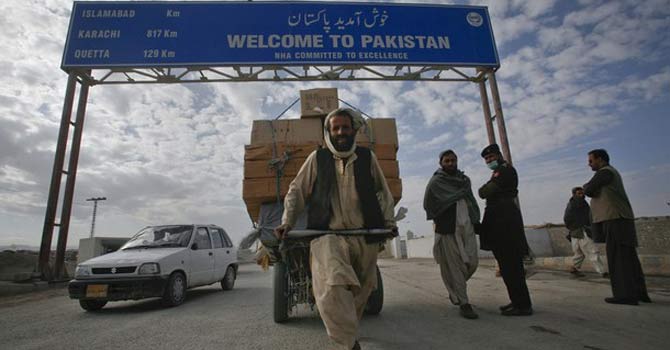ISLAMABAD
As Afghanistan’s divergence of trade continues to avoid dependency on Pakistan, Islamabad’s exports to the landlocked country have reduced to from $ 2.6 billion to $ 1.2 billion during the past five years.
Apart from Afghanistan’s growing trade with Iran and other regional economies, the heightened security protocols on Pakistani side, improved manufacturing facilities in Afghanistan and increase in informal trade are the reasons behind this huge reduction in trade with the neighboring country, experts believed.
In the fresh move of reducing its dependence on Pakistan, Kabul has initiated air cargo service by sending a plane loaded with 60 tons of medicinal plants to New Delhi this week, raising hopes of giving a major boost to commerce between Afghanistan and India.
With new trade links, the two countries expect boosting annual trade from $700 million to $1 billion.
According to experts Afghanistan has been a key exporting destination for Pakistani goods for the last two decades. However, downslide has been seen in trade during past few years. Pakistan’s exports to Afghanistan have come down from $ 2.6 billion in 2011 to $ 1.2 billion in 2016.
As per a survey of 2016 among other reasons of fall in exports with the neighboring country the cross border traders were worried about security of merchandise and inadequate banking facilities the most.
In the survey of over 200 enterprises involved in Afghanistan-Pakistan trade, the business community was particularly worried about, securing merchandise across borders, inadequate cross-border banking facilities, weak road and rail linkages between the two economies, uncertainty of air cargo, missing border-related trade infrastructure, and continuous resort to manual custom clearance leading to time delays and cost overruns.
Trade data of March 2017 shows, the most popular commodities being exported to Afghanistan from Pakistan included rice, wheat flour, cane and beet sugar, sucrose, sugar confectionary, household articles, and plastics.
Among the export of services, Pakistan provided business and government-related services, telecommunications, information technology and transport, and health services. During the same month Pakistan’s major imports from Afghanistan were coal and cotton.
Experts say Pakistan has been a key supplier of transit trade and its related services to Afghanistan. Like trade in locally-produced goods and services, its flow has also reduced from 75,000 containers in 2010 to 49,000 containers in 2016. Apart from several explanations for this reduction, the most important are reduced demand of North Atlantic Treaty Organisation (NATO) for transit services, recent slowdown in Afghanistan’s economy, and higher flows of transit via Iran and Central Asia.
Any slowdown in transit or transit-related reform measures leads to a reduction in commercial bilateral trade between the two countries. The reduction in Pakistan’s trade and transit flows with Afghanistan were a result of slow pace of tax, transport, trade facilitation reforms on both sides and increased informal trade across the border.
An exporter and member of FPCCI from Balochistan claims that trade with Afghanistan via small border routes has almost halted due to security situation resulting in further decrease in bilateral trade.
Promises were made in meetings of Joint Economic Council (JEC) of the two countries for instance both sides had promised to open more trade and transit routes. More frequent meetings were promised to discuss Afghanistan-Pakistan Transit Issue Contract Agreement (APTICA). A need was also felt to harmonise ECO and SAARC tariff codes.
Apart from banking issues, there are challenges in finance and insurance sectors preventing growth of trade including exorbitant insurance cost of over 100 per cent for Pakistan transit goods to central Asia which increases overall cost of trade. There are no formal money exchange companies at border points for any payment related discrepancy.




